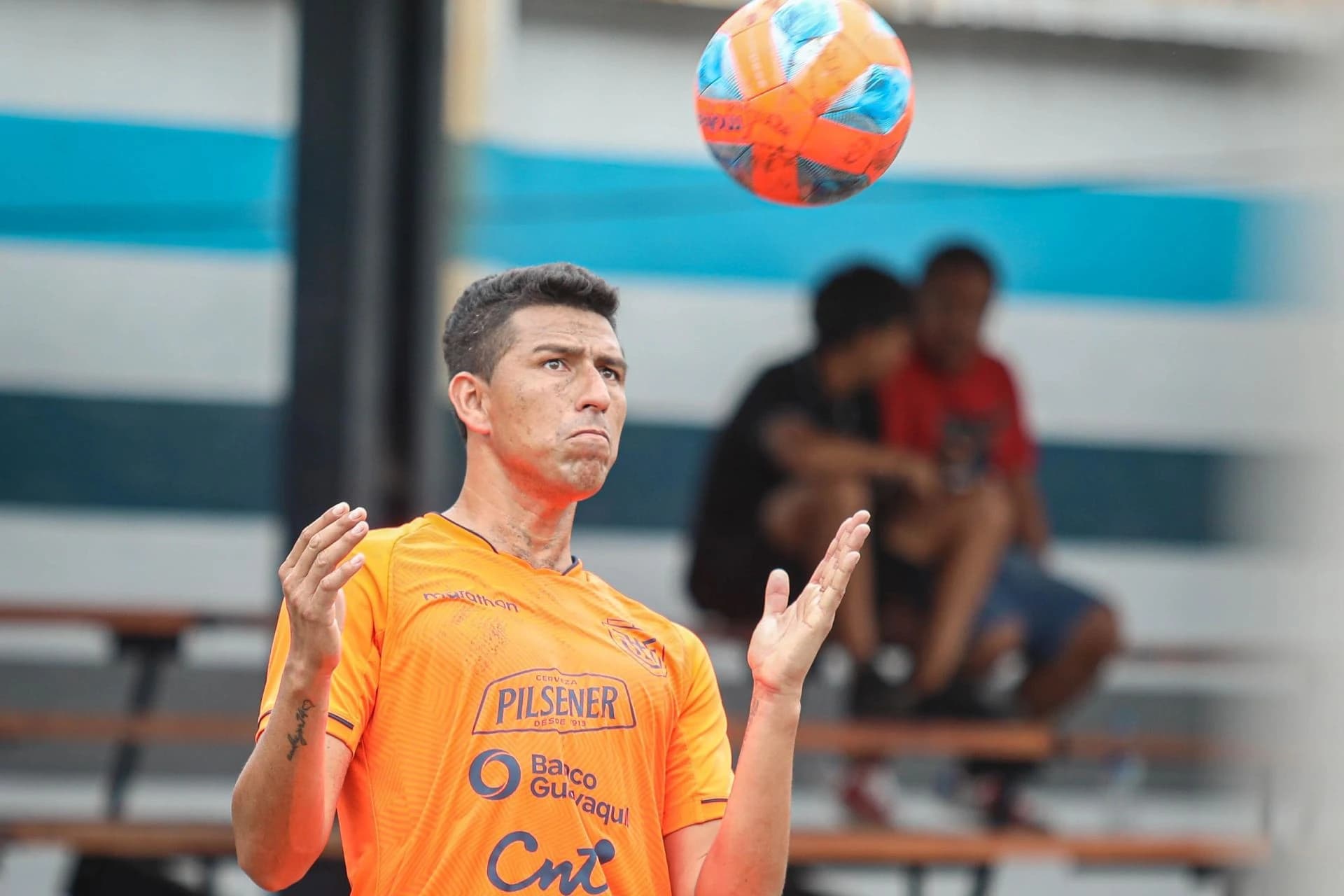Jorge Senge, Ecuador’s Captain in the CONMEBOL Copa América Fútbol Playa 2025™
Interview with one of the key figures of El Tri.

- He was close to making his debut in 11-a-side football with Manta FC.
- Now, as captain, he dreams of leading Ecuador to another World Cup.
Jorge Senge is eager to travel to Chile. Ecuador’s intense preparation has him motivated: "The Copa América is the most beautiful competition in the world. It gives you a spot in the World Cup, and that feeling is unique."
— You mentioned that your biggest dream is to play in the World Cup. What are your expectations?
— The people who went to the Bahamas (2017) talk about it like this: it’s like having a child. It’s pure joy, a trembling feeling, like winning the lottery. They told me that qualifying for the World Cup is one of the most important things in life. We’re training hard for this competition, which will be very demanding. Every match will be a story, a final. We’re optimistic, working triple shifts.
— In Rosario 2023, you finished ninth, but in three of your group-stage matches, you lost by just one goal. That’s a very small margin.
— As time goes by, you start to understand this sport. You can play well and lose by a goal, just as you can play badly and win 1-0. That’s the beauty of this discipline. Ecuador will always be a team that fights and battles. You could be losing 5-0, but Ecuador will always keep trying to play. That’s why I think no one wants to face us. The tournament in Argentina was incredibly intense. Of all the tournaments I’ve played, Argentina was the toughest. I had never seen anything like it—when you leave the pitch, they throw a towel at you, and smoke starts coming out. Very intense, very hard. Due to small details and key mistakes, we lost matches that were already in our hands. Excluding Brazil, which is on another level, Ecuador is close. It’s tough for anyone to dominate Ecuador.
Nicknamed Espantapájaros (Scarecrow), Senge (32) came through the youth ranks at Manta FC as a defensive midfielder. He spent four years in the reserves and made it to the first-team bench against Liga de Quito and Barcelona. In 2012, that chapter ended, and he became a fitness coach at the same club—until 2017, when he discovered beach soccer.
— When did you start playing beach soccer?
— In 2018. I went to watch a tournament while my wife was pregnant. One of the teams was short a player, and I had no gear to play. Profe Jardel, the Brazilian, invited me to join. On the first day, I broke a finger—it was tough. That’s where my journey started. The following year, I won the championship with the national team, beating Paraguay in Manta.
— What was the hardest part of adapting from 11-a-side football to beach soccer?
— Running. It was difficult to run fast on sand or make an accurate pass. The hardest thing was running—I kept twisting my toes and spraining myself. Lifting the ball was also tough, but it’s crucial because it helps you get out of tight situations. The bicycle kick was tricky at first, but then you get used to falling a certain way. It’s all about adaptation.
— You have Chile in your group, and they are the host nation. How much of an impact can that have?
— When a team plays at home, it’s a boost, a motivation. Those are the games Ecuador loves—when there’s a crowd. Personally, I like it when the stadium is full because that’s when you show your game. Chile is going through a new process; I see they have new players. The fans will be a factor because they will be cheering, and Chileans love to win. They live it with passion. Hopefully, it won’t affect our young players. The veterans already know how it is. We have to guide the younger ones, show them that it’s possible, and make them believe.
Ecuador will start the tournament on February 22 against Uruguay. Chile, Colombia, and Bolivia complete Group A.



